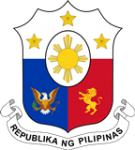dual citizenship (ra 9225)
Republic Act 9225 otherwise known as the Citizenship Retention and Reacquisition Act of 2003 (more popularly known as the Dual Citizenship Law) enables former natural-born Filipinos who have become naturalized citizens of another country to retain/reacquire their Philippine citizenship by taking an oath of allegiance to the Republic of the Philippines before a Philippine Consular Officer. Upon retaining or reacquiring their Philippine citizenship, they shall enjoy full civil, economic and political rights as Philippine Citizens.
Natural-born Filipinos are those who are citizens of the Philippines from birth without having to perform any act to acquire or perfect their Philippine citizenship. These are persons:
1. Born after January 17, 1973, whose fathers or mothers are citizens of the Philippines at the time of their birth;
2. Born before January 17, 1973 to a:
a. Filipino father; or
b. Filipino mother and that person elects Philippine citizenship upon reaching the age of majority.
Under the principle of derivative citizenship, unmarried children below eighteen (18) years of age, whether legitimate, illegitimate, or adopted, of former Filipino parents who retained/reacquired their Philippine citizenship under this law, may also be deemed Philippine citizens, if they are included as dependents in the parent’s application for retention/reacquisition of Philippine citizenship, and the requisite fees paid
HOW TO APPLY
STEP 1. Set up an appointment and payment online
STEP 2. Proceed to the Consulate on the appointment date and time
STEP 3. Proceed to the Consulate for interview/Oath-taking on your booked appointment for the following:
- Bring a printed copy of the email confirmation receipt/confirmation code;
- Bring original and submit one (1) copy each of required documents, including two (2) photos (2” x 2” or passport size);
- In-person Interview;
- Oath-taking (takes place once in the afternoon for all approved applicants).
- In-person Interview; Please arrive 15 minutes early for your appointment. Late-comers will not be accepted.
The ceremony is a solemn and meaningful event. Please dress in proper attire to respect the dignity of the event (no jeans, shorts, sandals/slippers, skimpy dress, sleeveless, etc). Those in improper attire will not be allowed to take the oath.
CORE REQUIREMENTS FOR PRINCIPAL APPLICANT
A. One (1) Duly Accomplished Dual Citizenship Application Forms
Download an Adobe-fillable dual application form here.
For instruction on how to fill out the form, please click here.
Applicant must not sign the application. This must be signed before a Consular Officer during your appointment.
B. PSA-issued Birth Certificate (Mandatory)
One original and one (1) photocopy of the Birth Certificate issued by the Philippine Statistics Authority (PSA or formerly National Statistics Office/NSO).
If you do not have a PSA-authenticated birth certificate, you can order one online through http://www.psaserbilis.com.ph OR the applicant may wish to designate a representative to secure it from the PSA and send it via courier.
If there is no record of birth with the PSA, check first with the local civil registrar (LCR) where the birth took place. If LCR birth record is available, the LCR should forward/endorse its copy to the PSA. If LCR does not have a copy of applicant’s birth record, the applicant or his/her duly appointed representative may apply for late registration of birth at the local civil registrar at the place of birth.
The applicant should request for a PSA-authenticated birth certificate once the LCR have endorsed the applicant’s birth record to the PSA.
C. Latest Philippine Passport (must present if still valid; otherwise, if the applicant is not able to present it, the Consulate requires a notarized affidavit of loss and police report)
Original and one (1) photocopy of the data page of latest Philippine passport.
D. PSA Marriage Certificate / ROM / US or Foreign Marriage Certificate
Required for married women. One original and one (1) photocopy. For those whose marriage was registered in the Philippines or who used their husband’s surname in their PH passport, the Consulate requires the submission of a PSA issued marriage certificate or PSA issued Report of Marriage.
E. Death Certificate
Required for widow. One original and one (1) photocopy.
F. Divorce Decree or PSA Marriage Certificate with Annotation on Divorce
Required for applicant who has previous marriages or divorced. One original and one (1) photocopy.
G. US/ Foreign Naturalization Certificate
Original and one (1) photocopy.
If the US Naturalization Certificate is not available, applicant must obtain a digital copy from the US Citizenship and Immigrant Services (USCIS).
This can be requested through their website: www.uscis.gov/FOIA
H. Valid US/ Foreign Passport
Original and one (1) photocopy of the data page of the valid US/ foreign passport.
If US / foreign passport is already expired, a valid government-issued identification card (e.g. driver’s license) is required.
I. Applicant’s Photos
On appointment date, bring two (2) colored, identical 2″x 2″ (passport size) photos, with plain white background. Applicant must not be wearing eyeglasses.
Photo should have been taken within the past six (6) months.
J. Notarized Affidavit of Explanation on How You Attained US Citizenship
- Original Notarized Affidavit
- Original US Naturalization Certificate and photocopy
This is required for adult applicants who derived U.S. citizenship through their parent(s) and do not possess their own Certificate of Citizenship.
Attach to the affidavit the US Naturalization Certificate of your parent/s.
REQUIREMENTS FOR EACH DEPENDENT CHILD (BELOW 18 YEARS OLD)
(Personal Appearance not necessary)
For minor children born in the US:
(a) if the principal applicant was already a US citizen at the time of the birth, the child/ren should be included as dependents in the petition.
(b) If at least one parent was still a Philippine citizen when the child was born, there is no need to include them as dependents in the petition. Their birth has to be reported to the Consulate instead.
For reporting a birth of a child born under our jurisdiction, please click here: http://newyorkpcg.org/pcgny/civil-registration/report-of-birth-of-a-filipino-abroad/
A. PSA Birth Certificate / US or Foreign Birth Certificate
One original and one (1) photocopy of the Birth Certificate issued either by the PSA/NSO or US Vital Records.
B. Latest Philippine Passport (for natural-born Filipinos)
Original and one (1) photocopy of the data page of latest Philippine passport.
C. US/ Foreign Certificate of Citizenship
Original and one (1) photocopy.
D. US Passport / Foreign Passport
Original and one (1) photocopy.
E. Child’s Photos
On appointment date, bring two (2) colored, identical 2″x 2″ (passport size) photos, with plain white background. Photos should be taken within the past six (6) months.
F. Payment
If not yet paid during the online appointment, $25.00 for each dependent – Payment should be in the form of cash, credit card, money order or cashier’s check payable to the Philippine Consulate General. Personal checks are not acceptable.
PETITION FOR INCLUSION OF DEPENDENT/S UNDER RA 9225
If the principal applicant already applied for dual citizenship and failed to include dependent children in the application, he/she may file a petition for inclusion of dependent children who are under 18 years of age and unmarried.
Requirements:
- Duly accomplished Petition for Inclusion of Dependents Application Form .To download the the form click here: newyorkpcg.org/pcgny/wp-content/uploads/2020/08/Petition-for-Inclusion-of-Dependents-Under-RA-9225-1.pdf
- One (1) Original and one (1) photocopy of Petitioner’s Dual Citizenship papers (Oath of Allegiance, Identification Certificate, & Approval Order)
- Two (2) pieces of dependent child’s 2″ x 2″ (passport size) photograph with white background taken not more than 3 months before the date of application.
- Two (2) pieces of principal’s 2″ x 2″ (passport size) photograph with white background taken not more then 3 months before the date of application.
- Original and one (1) photocopy of dependent child’s birth certificate.
- Original and one (1) photocopy of dependent child’s valid foreign passport bio-page.
- One (1) photocopy of the child’s PH passport bio-page (for those born in the Philippines) and have the original passport ready for vetting.
- One (1) photocopy of petitioner’s valid passport bio-page and have the original passport ready for vetting.
- Payment: $25.00 for each dependent – Payment should be in the form of cash, credit card, money order or cashier’s check payable to the Philippine Consulate General. Personal checks are not acceptable.
The Consular Officer reserves the right to require additional documents from the informant or applicant when necessary.
NEXT STEPS AFTER ISSUANCE OF DUAL CITIZENSHIP PAPERS
1. Principal Applicant and Dependent Child*
*Dependent Child born to Filipino parent/s and became naturalized US citizen.
(Optional) Apply for Philippine passport.
As a dual citizen, it is not mandatory to apply for a Philippine passport. You may use your US passport when travelling to the Philippines. You simply have to present your dual documents to the Philippine Immigration Officer as proof of Philippine citizenship, per the Bureau of Immigration’s Operation Order No. SBM-2014-045 dated 30 September 2014 which is in force and still in effect. Incoming Filipinos may present a valid PHL passport, Identification Certificate or a Certificate of Re-acquisition / Retention of PHL Citizenship to be admitted as Philippine citizens.
Individuals who have just retained/reacquired their Philippine citizenship and who wish to apply for a Philippine passport will need to make a separate application and submit the requirements as specified in “passport for dual or newly-registered PH citizens”.
Requirements for application for a new passport may be found here: http://newyorkpcg.org/pcgny/consular-services/
To secure an appointment for passport application, visit www.passport.gov.ph.
2. For Dependent Child**
**Born in the US whose parents were already US citizens at the time of child’s birth.
STEP 1
Report the birth to the appropriate Philippine Embassy/Consulate which has jurisdiction over the place of birth.
Click here for information about requirements and procedure in reporting the birth.
STEP 2
Apply for a Philippine Passport
The child is eligible to apply for a Philippine passport immediately after reporting the birth to the appropriate Philippine Embassy or Consulate.
Click here for information about requirements and procedure in applying for Philippine passport.

